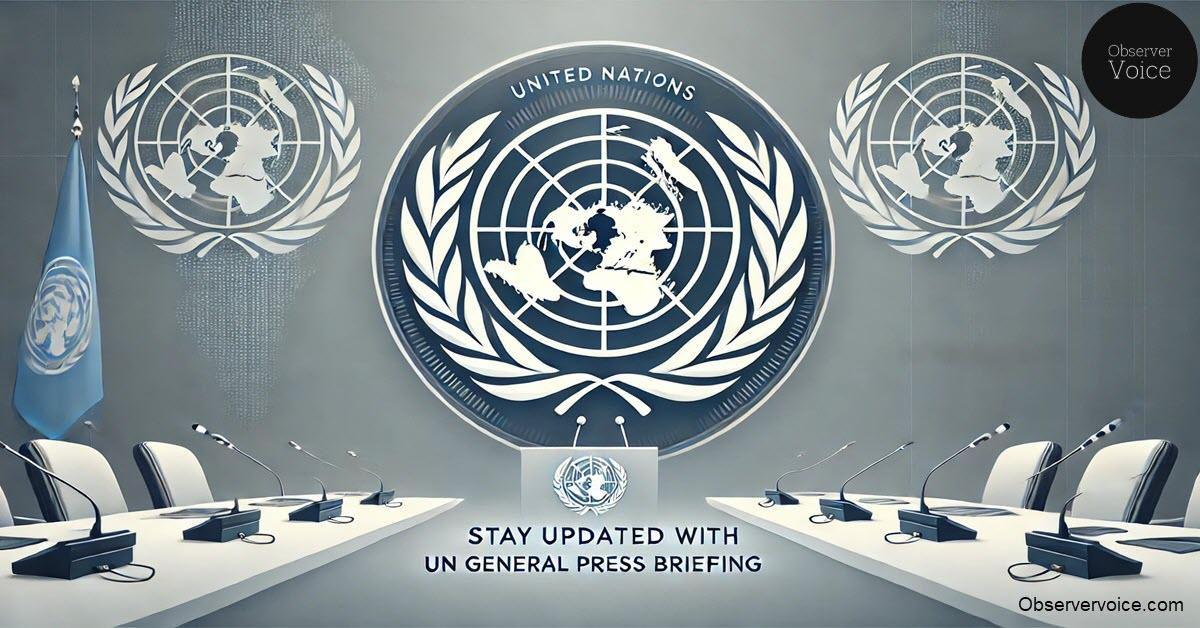Guterres Urges G20 to Prioritize Global Justice

In a significant address to G20 sherpas and finance officials in Johannesburg, South Africa, UN Secretary-General António Guterres emphasized the urgent need for global financial reform and justice. As the G20 prepares for its upcoming summit under South Africa’s presidency, Guterres outlined critical priorities that must be addressed. He highlighted the interconnectedness of social inclusion, poverty alleviation, and sustainable development. Guterres called for a united effort to ensure that financial resources are deployed effectively and equitably, particularly for developing nations. His remarks underscored the pressing challenges faced by the global community, especially in light of historical injustices that continue to impact Africa and other developing regions.
Financial Justice: A Call to Action
Guterres stressed that financial justice is essential for achieving inclusive economic growth and addressing inequalities. He pointed out that the G20 must lead the way in reforming global financial institutions to better represent today’s economic realities. The current financial architecture, rooted in the post-World War II era, fails to adequately serve developing countries, particularly those in Africa. He emphasized the need for multilateral development banks to increase their capital and lending capacity. By doing so, these institutions can better support vulnerable economies and protect them from global shocks.
The Secretary-General also highlighted the importance of mobilizing finance at scale to close the Sustainable Development Goals (SDGs) financing gap. He argued that enhancing the role of multilateral development banks is crucial, as they can multiply investments significantly. For instance, a country investing $1 in a multilateral development bank could potentially leverage that amount to generate $5 or more for development projects. Guterres urged G20 members to prioritize concessional funding while also considering vulnerability metrics beyond just GDP. He called for a comprehensive approach to debt resolution, emphasizing the need for timely and effective solutions to the debt crisis that many countries face.
Climate Justice: A Shared Responsibility
In his address, Guterres underscored the pressing need for climate justice, particularly for vulnerable nations that contribute little to global emissions yet bear the brunt of climate change impacts. He called on G20 countries, as the world’s top emitters, to take the lead in reducing emissions and supporting developing nations in their transition to clean energy. Guterres emphasized the principle of common but differentiated responsibilities, urging each G20 member to enhance their climate action plans in line with limiting global temperature rise to 1.5°C.
He also highlighted the importance of developed countries providing adequate financial and technological support to developing nations. This includes fulfilling commitments to the new loss and damage fund and doubling adaptation finance by next year. Guterres praised South Africa’s leadership in initiatives like the Just Energy Transition Partnership, which aims to facilitate a fair transition to renewable energy. He stressed that Africa’s critical mineral resources must benefit local communities first, ensuring that the continent does not repeat past mistakes in resource exploitation.
Technological Justice: Bridging the Digital Divide
Guterres also addressed the need for technological justice, emphasizing that developing countries must have access to the benefits of the digital revolution. He pointed out that the Global Digital Compact, endorsed by world leaders, aims to foster progress in this area. This compact includes provisions for the governance of artificial intelligence (AI) and calls for an independent international scientific panel on AI. Guterres urged the G20 to support developing nations as they invest in digital systems that can drive prosperity and sustainable development.
He highlighted the importance of ensuring that every country has a voice in the governance of emerging technologies. By fostering an inclusive approach to technology, the G20 can help bridge the digital divide and empower developing nations to harness the potential of digital innovation. Guterres reiterated that G20 sherpas, finance ministries, and central bank representatives play a crucial role in setting the agenda and aligning resources to achieve these goals.
Observer Voice is the one stop site for National, International news, Sports, Editor’s Choice, Art/culture contents, Quotes and much more. We also cover historical contents. Historical contents includes World History, Indian History, and what happened today. The website also covers Entertainment across the India and World.

